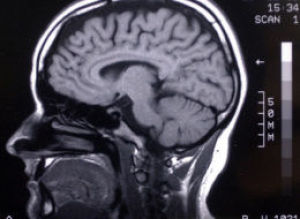Companies touted automatic enrollment in 401k plans as a great way to harness workers' inertia and better their retirements.
Instead of waiting for employees to opt into the plans, starting in 2007 the companies could just sign 'em up and let them start accumulating wealth for their future.
These companies weren't just being altruistic, however. The hidden agenda behind the surge toward automatic enrollment was this: It allowed the companies' highly paid executives to contribute more to the plans.
By offering automatic enrollment and contributing 3% to lower-paid workers' accounts, companies don't have to pass the discrimination tests that were designed to keep retirement plans from benefiting executives at the expense of lower-paid workers.

"The same consulting firms and law firms that are advising companies are providing all the advice to the government on (retirement plan) reforms," said Wall Street Journal investigative reporter Ellen Schultz, the author of the new book "Retirement Heist: How Companies Plunder and Profit from the Nest Eggs of American Workers." "Everything they suggest is a Trojan horse."
Another revelation in Schultz's book has to do with matching funds. Companies can pass the discrimination tests by offering matches, which are supposed to encourage more lower-paid workers to participate. But the workers don't necessarily get to keep the money. Employers can impose long vesting requirements, Schultz writes, so that people who leave before three to five years on the job don't get to keep the full match. The employer gets its contribution back, along with any earnings that money made -- all tax-free.
In the book, Schultz outlined how Wal-Mart Stores redistributed the profit-sharing funds forfeited by nearly 80,000 departing workers in 2009 to other employees "based on eligible wages," which meant that contributions originally meant to encourage lower-paid workers to participate actually wound up in the accounts of higher-paid employees.
Schultz comes by her cynicism regarding company motives honestly. She's spent years tracking how corporations raided what used to be healthy, fully funded traditional pension plans to benefit shareholders and executives.
She and another Journal reporter won awards for their investigation into how companies bought life insurance on their unwitting workers to benefit their bottom lines and to fund executive compensation plans. She also was part of a team of Journal reporters who won a 2003 Pulitzer Prize in explanatory reporting for showing how companies hide executive compensation.
Schultz has little patience with companies that whine about their huge pension liabilities -- often without disclosing that a big chunk of the money they owe is massive deferred compensation payments they've promised to executives. To win sympathy from lawmakers and get changes in pension laws, companies can exaggerate their liabilities simply by tweaking the actuarial assumptions made about their pension plans.
"I wish people would be skeptical about companies' claims about their (pension) liabilities," Schultz said. "These companies have a track record of inflating claims deliberately to deceive people."
In their efforts to cut, freeze and do away with traditional pensions, companies have put workers' financial futures at serious risk, Schultz said. The retirement plan that has come to replace traditional pensions, the 401k, "is a failure," she said.
"People don't save enough. Some can't afford to save enough, they might not vest, or they spend it long before retirement," Schultz said. "You can still lose a huge chunk (due to market fluctuations) even if you do everything right. . . . The 401k does not provide security for most of the workplace."
Still, your 401k may be your only workplace retirement option. If you don't fund it -- and fund it well -- you have no shot at a comfortable retirement. Instead of giving up, Schultz hopes more workers will study the history of what really happened to pension funds, be more skeptical of changes their companies propose and push their lawmakers to protect retirement funds from company grabs.
On a more personal level, here are three things you can do to protect what's left of your retirement funds:
- Beware the lump sum. In theory, a properly invested lump-sum payout could provide you with more money than the lifetime annuity that's typically your other option when you retire. But most people won't invest well and will spend too much, Schultz said. Lump sums transfer all the risks to the retiree: investment risk, interest rate risk, inflation risk. Even if you do everything right, you still run the risk of outliving your money. That "longevity risk" is why most people are better off opting for the annuity.
- Don't leave before you vest. Don't assume everything in your retirement plan is yours to keep. If you leave before you're fully vested, you'll give up some or all of your company contributions to your plan. Once you leave a job, you should roll your retirement money into your next employer's plan or into an individual retirement account. Whatever you do, don't cash out; that's extremely hazardous to your financial health. It's not just the taxes and penalties you'll incur, although those will eat up one-quarter to one-half of the withdrawal. It's more the lost tax-deferred returns that money could have earned. Figure that every $1,000 withdrawal will cost you at least $10,000 in future retirement money.
- Don't believe your company's promises. Companies often try to persuade older workers to retire early by promising a package of benefits. Yet the fine print of the contract you sign often includes wording that allows the company to change the terms of the agreement -- in other words, it can renege on any promises made to you, Schultz said. One area where early retirees frequently get burned is health care benefits. Companies may promise to provide insurance but often cap the amount they'll pay. Premium increases are passed on to the retirees. The cost can get so high that most healthy people with other insurance options drop out. That leaves an increasingly unhealthy pool of retirees behind. Their claims rise, the company raises rates again, and an "insurance death spiral" ensues that eventually makes the insurance unaffordable. ( msn.com )
READ MORE - Save what's left of your retirement










